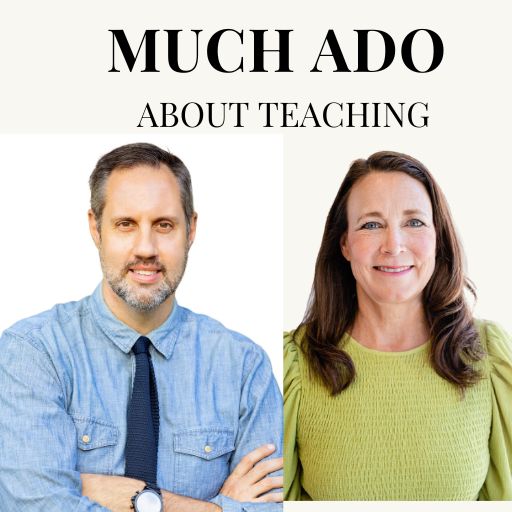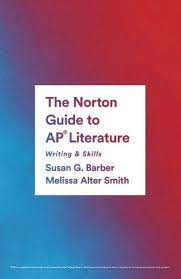One of the most common questions I receive at APSIs centers on how to structure an AP class. This is not an easy question to answer since there is no one right way to approach the class. The CED even states:
“This publication is not a curriculum. Teachers create their own curricula by selecting and sequencing the texts and tasks that will enable students to develop the knowledge and skills outlined in this document. In some cases, teachers also need to meet certain state or local requirements within the AP curriculum they develop for their school. The objective of this publication is to provide teachers with clarity regarding the content and skills students should learn in order to qualify for college creditandplacement.TheAPProgramrecognizesthat the real craft is in the skill with which teachers develop and deliver instruction” (CED p. 9).
On page 113 of the CED there is a list with short explanations of recommended instructional approaches. They include genre (following the nine units outlined in the CED), a thematic approach, a survey course, or author studies. Most people I know choose the first or second approach or a mix of the two.
In a survey on the Facebook page, here’s the breakdown of classroom approaches with a total of 414 votes at the time of writing this:
I use a hybrid approach. I do this because I want us to have a solid understanding and working vocabulary for each skill from the beginning. I cannot assume all of my students are at the same place at the beginning of the year, and this helps students regardless of where they are. This works for my demographic; if you are in a school where students have had a lot of literary analysis instruction, this approach may not work as well.
Last year I taught units 1 – 6 in order in one combined novel unit supplementing with short stories/excerpts and poems, and 7, 8, and 9 just depends on where we are by then and what students need. These are how my first two units and last 3 units laid out:
Short Stories – Unit 1
Short story title Skill
| Nighthawks | Introduce enduring understandings |
| “The Story of an Hour” | 1A, 2A, 7A |
| “The Rock Eaters” | 4A, 4B3A |
| Bao | 1A, 2A, 2B |
| “The Flowers” | 7A |
| “The Last of Us: Long, Long Time” | Review enduring understandings |
| Essay 1 – The Rock Eaters | 7A – 7E |
Poems – Unit 2
Poem title Skill
| “Something You Should Know” “For the Boys at the Bottom of the Sea”“What the Ocean Said to the Black Boy” | 3C6B |
| “Ode to the loop-de-Loop” “Ode to 9th and O NW”“Ode to the Only Black Kid in Class”“Ode to the Drizzy Drake Hands” “Ode to the End-of_Year 6th Grade Picnic” “What the cicada said to the black boy”“What the window said to the black boy”“what the fire hydrant said to the black boy” | 5A, 5B6A, 6B |
| “How to Fight” “For the Taxi Cabs that Pass Me in Harvard Square”“When Maze and Frankie Beverly Come on in My House” “How to Make an Empty Cardboard Box Disappear in 10 Steps” “Line/Breaks” “When They Tell You the Brontosaurus Never Existed” | 3C |
| “For the Boys Who Never learned How to Swim” “Beyond This Place” “James Baldwin Speaks to the Protest Novel” “The Protest Novels Responds to James Baldwin” “The Men in Orange” -“How Malcolm Learned to Read”“From the Cell Block” “No More Elegies Today” | 3C, 3D5A, 5B, 5C, 5D6A, 6B, 6C, 6D |
| Playground Elegy | 7A |
| “What the cathedral said to the black boy”“There is a lake here” | 3D5A |
| Poetry essay | 7A – 7E |
Long Fiction/Drama – Unit 3
| Novella choice unit | Enduring understandings7A |
| Q3 essay | 7A – 7E |
Repeat units as necessary.
If you decide to organize your course by thematic ideas, the skill progression can still be followed but skills can be blended within the unit. This skills progression sheet developed by Lisa Boyd may be useful in planning.
Units 6 – 7: Thematic Focus – Fences (family dynamics, overcoming past trauma)
Title Skil
| Act I, scene i | 2A, 2B, 2C |
| Act I | 5C |
| Act II, scene IAnnotation of Troy’s fighting with death scene | 3D, 5C, 6B |
| Prose essay | 7A – 7E |
| Act II | Enduring Understandings |
| My Papa’s WaltzThose Winter Sundays | 3A, 3D4A, 4D |
| FRQ3 essay | 7 A – 7# |
You can find last year’s lesson plans here: Barber Fall 2023; Barber Spring 2024
I would also encourage veteran teachers to conduct a course audit from the prior year. This is extremely enlightening and always helps with planning for the next year. Here’s my course audit from the last two years: Barber Course Audit 23 – 24; Barber Course Audit 22 – 23
We should also keep in mind the following when planning?
Pre- 20th century prose, Post – 20th century prose
Pre – 20th century poetry, Post – 20th century poetry
A wide representation of voices
Whole class vs. choice novels
Again – there is no one right way to approach the class. I suggest new teachers follow the CED units the first year through; this approach provides the most structure, is easy to follow, yet still allows for flexibility. After having a more thorough understanding of the course, newer teachers will feel more comfortable structuring the course thematically if they choose to go this direction.
I also encourage new and veteran teacher to teach what they love and are already familiar with; I only change up one to two texts each year in an effort to keep my planning as stress free as possible. Next year I am adding a novel and am planning on teaching units 1, 2, and 3 in order then combining units 4 – 6 and 7 – 9. I think it’s helpful especially for new teachers to plan the first couple of months in detail and have the rest of the calendar roughly mapped out. Gauging the pace of the class over the first few weeks makes planning the rest of the year easier.
These genre planning sheets are a great resource to keep a running log of texts you have used or want to use in class and where in the year they best fit even if you teach by thematic units.
Poetry Skill Progression Planning Sheet
Short Fiction Skill Progression Planning Sheet
Long Fiction/Drama Skill Progression Planning Sheet
Here’s a planning worksheet that I provide at my APSIs with these templates and more information (such a planning on a 4×4).
And now, I’m closing my computer, heading to yoga then lunch with friends and will not be spending any more time today thinking about or planning for next year. And I encourage you to do the same.

Susan Barber teaches AP® English Literature at Midtown High School in Atlanta, Georgia, and serves as co-chair of the AP® Literature Development Committee. She is the coauthor of The Norton Guide to AP® Literature: Writing & Skills (2022), forthcoming engaging lessons book with Brian Sztabnik (Corwin), ELA consultant, and speaker. Susan is most proud of the work she does on a daily basis in E216 and never tires of the beauty and chaos of the classroom.












